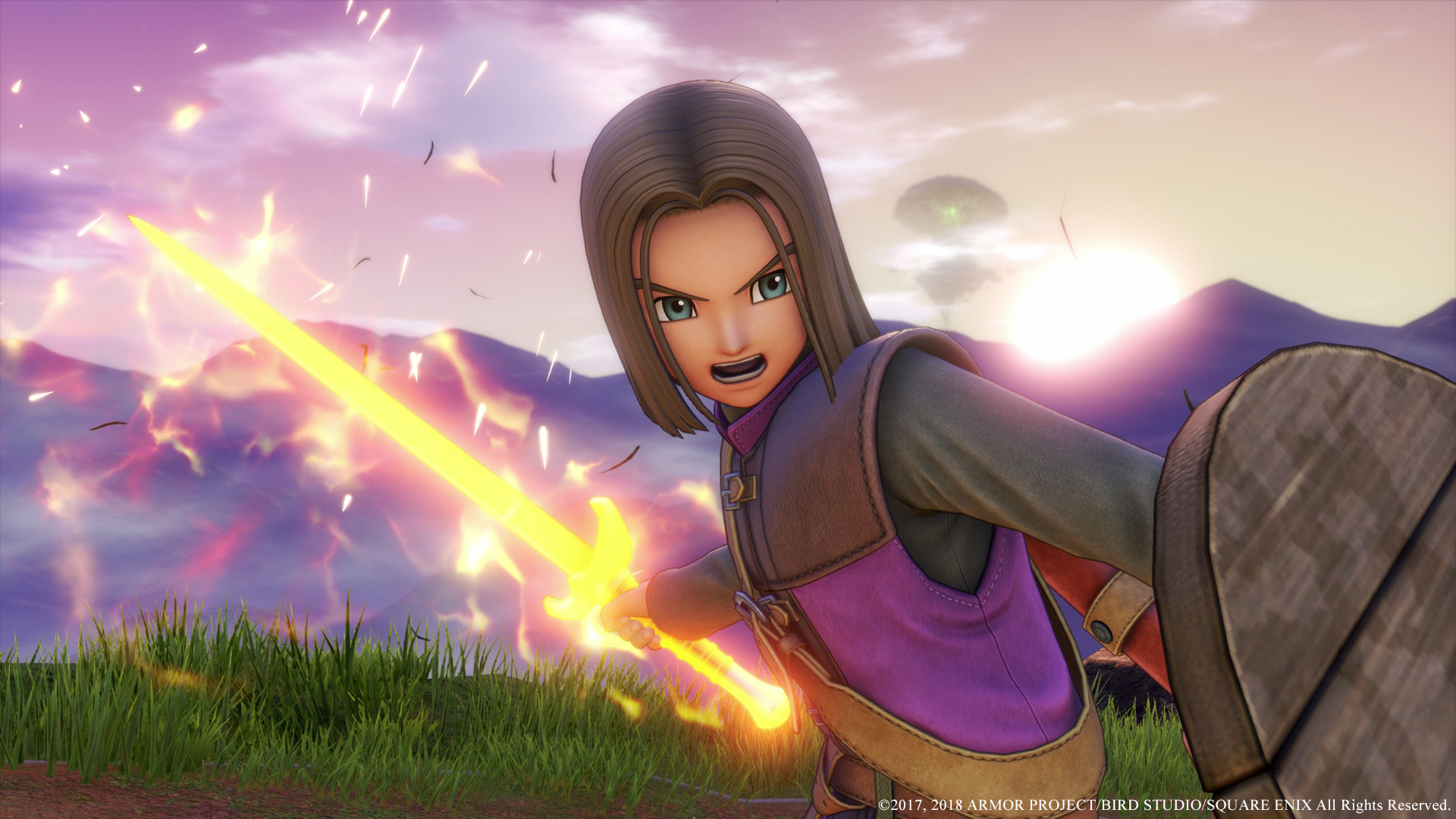Why Dragon Quest 11 will have English voice acting even though the Japanese version has none
And what else is changing in the localized PC release.

In a 2018 interview with Weekly Famitsu, as translated by Gematsu, Dragon Quest 11's designers explained why the Japanese version wouldn't have voiced characters. While it was apparently a debate within the studio, they ultimately decided to maintain Dragon Quest's traditional text-only dialogue, which saved time and allowed series creator Yuji Horii to change the script at any point during development. The English version of Dragon Quest 11, however, will have character voices when it releases this September. At PAX East last week, I asked why.
Producer Hokuto Okamoto told me that part of the reasoning goes back to Dragon Quest 8, which also released with English voices. "That was received quite well by the players of [DQ8], and so we wanted to continue that with DQ11," he said via a translator. And regarding Dragon Quest 11 specifically, he said that by using various English dialects they were able to communicate distinctions between regions in the world and "add additional depth to the characters."
That could of course be done with Japanese dialects, too, but Okamoto says that the series' legacy in Japan was also a concern. "This game has been around since the NES days, and so within Japan it's become essentially the norm, the standard, to read the text and envision what that might feel like, might be like for yourself as a player, and so that was the definitive way to play the game," he said. "We wanted them to really experience the text developed and created by Horii-san and his unique style through and through … We didn't want to make it pushy from our end to provide them what it 'should' sound like, per se. Which is why we decided not to include the voice in the latest version of the game as well."
It isn't entirely clear why voices would be "pushy" for a Japanese-speaking audience but not an English-speaking audience, which is familiar with text-based RPGs as well—though it is true that most big budget games include voices in the West. Aside from that perception and the inclusion of English voices in DQ8, I also presume that, because the script did not have to remain fluid during localization, adding voices wasn't going to get in the way of Horii's writing.
Okamoto confirmed that there will be an option to turn off all character voices should you want to play it as it was originally designed.
Aside from the inclusion of English voice acting, Dragon Quest 11's localized version is also getting new menus, a first-person 'camera' mode, more difficulty options, the ability to run around during the turn-based battles (with no actual effect on the battles other than looking cool), and a faster 'dash' sprint—whether that's because movement in the Japanese version was too slow, or because there's a view that Western audiences prefer speedier transit wasn't clear. (We are impatient, to be fair.)
As far as PC-specific features, assistant producer Hikari Kubota didn't have many specifics to share, except to confirm that Dragon Quest 11 will have mouse and keyboard support. "We are discussing internally what we can potentially do, and what PC gamers essentially would like to see," he said. "So there is an internal conversation between our Japan offices and our North American/European Steam team to discuss what type of settings, and what we could bring in our PC release. And so, as for specifics at this moment in time, this is something we're adjusting for now, so it would be great if you could just watch out for further updates."
The biggest gaming news, reviews and hardware deals
Keep up to date with the most important stories and the best deals, as picked by the PC Gamer team.
Square Enix also tells me that there are no DLC or expansion plans, as Dragon Quest 11 is intended as a "full package" as it is. It will be released worldwide on September 4, and it sounds like we'll be hearing more about the PC-specific features before then.

Tyler grew up in Silicon Valley during the '80s and '90s, playing games like Zork and Arkanoid on early PCs. He was later captivated by Myst, SimCity, Civilization, Command & Conquer, all the shooters they call "boomer shooters" now, and PS1 classic Bushido Blade (that's right: he had Bleem!). Tyler joined PC Gamer in 2011, and today he's focused on the site's news coverage. His hobbies include amateur boxing and adding to his 1,200-plus hours in Rocket League.

